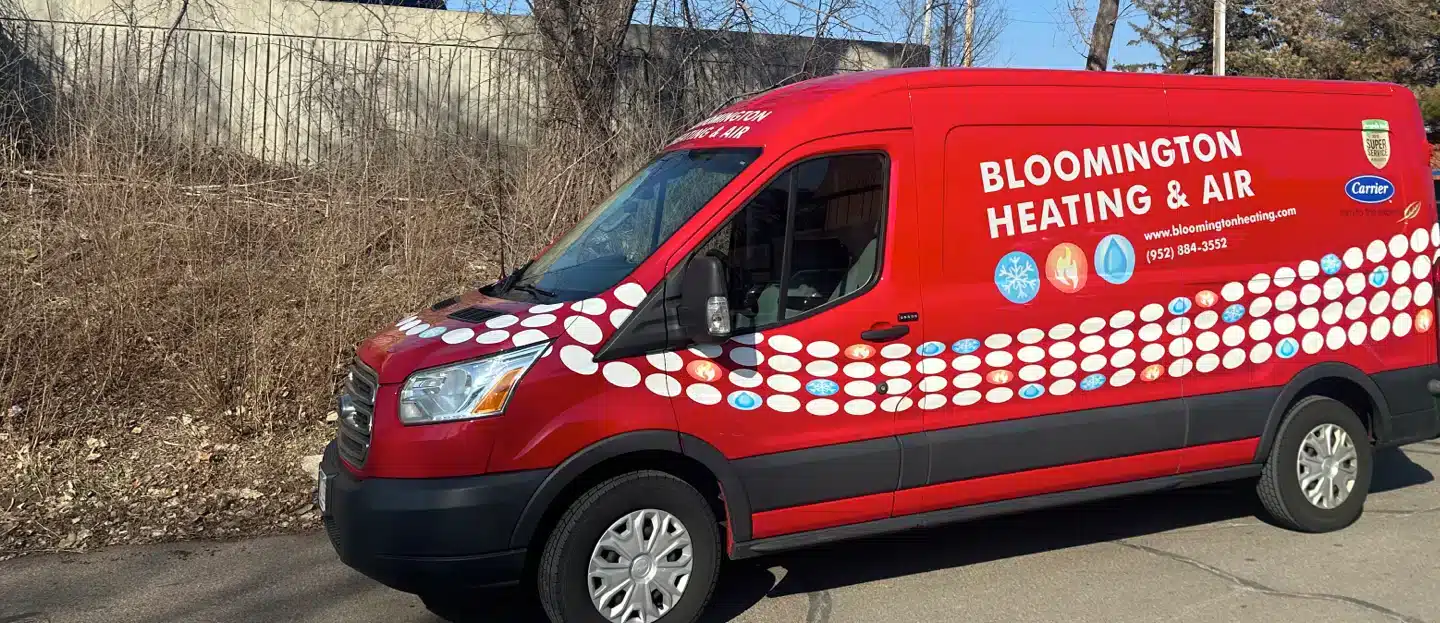
24/7 Emergency Phone Line
Family Owned & Operated
Licensed, Bonded & Insured
A significant amount of our customers in Bloomington, MN, and the surrounding areas have pets in their homes. Our HVAC company loves our customers’ animal companions, and while pets can be sources of great joy in our lives, they can also present factors that affect our indoor air quality or IAQ and our residential HVAC systems. For homeowners with furry pets, natural pet dander and shedding enters the air, sticks to soft surfaces, and, like dust, covers the flooring. Unlike dust, however, pet dander won’t be totally cleaned by any amount of vacuuming. Here, our technicians share top HVAC maintenance tips for pet owners, so you and your furry pet can enjoy high-quality, cleaner indoor air year-round. Contact us today to schedule air conditioning maintenance and to schedule an appointment!

Change Your Air Filters Frequently
Ensuring your home’s indoor air is of the highest quality is not only important for your health and well-being but also for your pet’s. Just like humans, pets spend the majority of their time indoors. The more time your pet spends indoors, the greater amount of accumulated dander, dirt, and debris will accumulate in your air filters frequently and regularly. Dirty and clogged air filters can reduce the airflow in your home, requiring your HVAC system to work overtime to meet your temperature demands. Dirty filters also reduce your IAQ, increase energy costs, and allow airborne allergens and particulate matter to remain in your home and the air you breathe. If you’re a pet owner, changing your air filters at least once a month can help boost your IAQ, ensure cleaner, healthier air, reduce energy costs, and prevent HVAC breakdowns.
Upgrade Your HVAC Filter
Even if you change your air filters every month, clean your house regularly, and brush your pets to remove excess dander and hair, your IAQ may not be as healthy as it could be. That’s where HVAC filter upgrades come in! Every HVAC filter has a MERV (Minimum Efficiency Reporting Value) rating, which tells you how effectively your filter traps airborne pollutants and indoor contaminants throughout your home on a 1-16 scale. The higher the MERV rating on your filter, the greater number of airborne particles the filter can contain. For pet owners and those with allergies alike, using filters with high MERV ratings can effectively reduce the circulation of pet dander, dust, dirt, pollen, and bacteria in the home. Wondering what filter best fits your system and your IAQ needs? Contact Bloomington Heating & Air for assistance!
Schedule HVAC Maintenance Regularly
The majority of people spend 90% of their lives indoors, and whether it’s due to over-insulation, present sources of contamination, or other reasons, the air they breathe may be unhealthy and potentially harmful. The impacts of poor air quality can be detrimental to your and your pet’s health and even lead to premature death, particularly when carbon monoxide or other pollutants are present in high concentrations. Investing in bi-annual HVAC maintenance can safeguard the air quality in your home and prevent harmful contaminants from circulating in the air you breathe. Bloomington Heating & Air offers comprehensive HVAC services and residential maintenance, and indoor air quality services to help our customers breathe easier with high-quality, fresh air, no matter the season. In addition to improved IAQ, regular maintenance on your system can cut energy bills, prevent costly breakdowns, and extend the lifespan of your HVAC system.
Create A Barrier Around Your HVAC Unit
If your HVAC unit is easily accessible, chances are your pet will access it. Not only might this be dangerous for them, but it can result in HVAC system damage. When damage occurs to your HVAC system due to pets, it can be easy to ignore the issue, but its effects can seriously affect your IAQ, the lifespan of your HVAC system, and your indoor comfort. What’s more, repairing HVAC damage can be expensive, adding up over time. The best way to prevent your furry friend from becoming injured or sustaining damage to your HVAC system is to create a barrier around it. Consider installing a small fence or another type of barrier around the outdoor HVAC unit and compressors.
